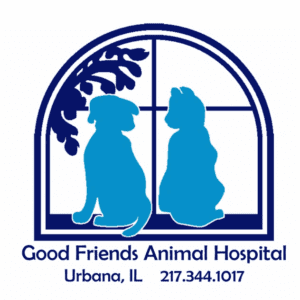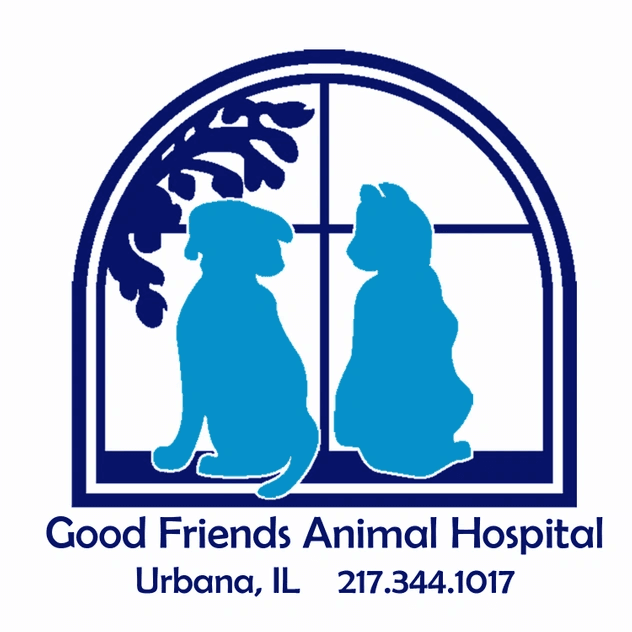Can you believe that it’s almost Thanksgiving? Food is a huge part of the autumn holiday, and our canine companions are definitely more than happy to help us celebrate. It’s probably safe to say that Fido will be putting on his most effective sad-puppy expressions when those delicious meals start coming out of the oven. There’s no reason you can’t give your pooch something yummy. However, you’ll need to take care to only offer him things that are safe. A local Champaign, IL vet offers some insight on that below.
Meat, Fish, And Poultry
Man’s Best Friend is a big fan of meat, which makes up the bulk of his diet in the wild. Fido will be happy to know that most types of meat are safe for him … with a few caveats. First and foremost: never give your pooch meat on the bone. Cooked bone is very brittle, and can break into sharp slivers when chewed. This is very dangerous! You’ll also want to remove the skin and fat as well. Limit organ meat, such as kidney and liver. It’s fine in small doses, but too much can lead to Vitamin A toxicity. Finally, take it easy on processed meats, especially salty, fatty things like sausage, bacon, and pepperoni. (Note: make Fido do a trick for his snack. Dogs love being rewarded.)
Fruits And Veggies
Meat should form the bulk of Fido’s diet, but it doesn’t offer him all the nutrients he needs. Many fruits and veggies are not only safe for dogs, but are actually healthy for them. Some of the suitable options you may find on a Thanksgiving menu include cooked carrots, peas, green beans, spinach, apple, pumpkin, squash, and sweet potato. Remove seeds, pips, pits, and thick skins before giving them to your four-legged pal.
Other
Cheese is just as popular with dogs as it is with people. A small amount is okay here and there, but this is another thing you want to limit. Fido may also enjoy some cooked egg, or a bit of natural peanut butter.
Unsafe Foods
What’s on that no-no list? Grapes, currants, and raisins are the most dangerous for pups. Chocolate is also poisonous to Fido. Other things to keep out of paws’ reach include garlic and onion, caffeine, alcohol, avocado, and anything that contains xylitol and/or a lot of salt, sugar, or fat. Ask your vet for more info.
Our Advice on Safe And Unsafe Treats For Fido in 2024
How much meat, fruits, and vegetables can be safely given to dogs as treats, considering their size and weight?
The amount of meat, fruits, and vegetables that can be safely given to dogs as treats should ideally not exceed 10% of their total daily calorie intake, with their regular diet comprising the rest. For a balanced approach, small to medium-sized dogs might safely enjoy a few small pieces of meat and a couple of bite-sized portions of safe fruits or vegetables per day. Larger dogs can handle slightly more, but moderation is key to avoid digestive upset and maintain nutritional balance. Always consider the individual dog’s size, weight, and dietary needs.
Are there any specific seasonings or spices commonly used in Thanksgiving dishes that could be harmful to dogs?
Yes, several seasonings and spices commonly used in Thanksgiving dishes can be harmful to dogs. Onion and garlic powder are particularly toxic, causing damage to red blood cells and leading to anemia. Nutmeg, often used in pumpkin pie and sweet potato dishes, contains myristicin, which can cause seizures and central nervous system problems in dogs. Additionally, excessive salt and sugar, as well as herbs like sage and rosemary, can cause gastrointestinal upset and other health issues. It’s best to keep seasoned foods away from dogs.
What are the symptoms of Vitamin A toxicity in dogs, and how much organ meat is considered “too much”?
Symptoms of Vitamin A toxicity in dogs can include lethargy, loss of appetite, weight loss, and stiffness due to bone and joint pain. Excessive bone growth on the elbows and spine can also occur, making movement painful. As for organ meat consumption, it should be limited to about 5% to 10% of a dog’s total diet to avoid toxicity. For example, feeding small dogs no more than 1 ounce of liver per week and larger dogs a maximum of 3 ounces per week is advisable to prevent Vitamin A overdose.
Are there any specific types of cheese that are safer or more appropriate for dogs to consume?
Cheese can be a safe treat for dogs when given in moderation, but some types are safer and more appropriate than others. Low-fat cheeses, such as mozzarella or cottage cheese, are preferable because they contain less fat, reducing the risk of pancreatitis. Additionally, it’s essential to choose cheeses that are low in salt and avoid those that contain herbs, garlic, or onion, as these are toxic to dogs. Always introduce cheese into your dog’s diet gradually to assess tolerance and prevent digestive upset.
What are the specific dangers of feeding dogs cooked bones, and what should be done if a dog accidentally ingests one?
Cooked bones pose significant dangers to dogs because they can splinter and break easily when chewed. These splinters can cause serious injuries, such as puncturing the gastrointestinal tract or causing intestinal blockages. If a dog accidentally ingests a cooked bone, it is crucial to monitor them closely for signs of distress, including vomiting, gagging, drooling, refusal to eat, or signs of pain. If any of these symptoms occur, or if you suspect a bone has been swallowed, contact a veterinarian immediately for professional advice and possible intervention.
Happy Thanksgiving! Please contact us, your Champaign, IL pet hospital, anytime!

